McLaughlin College invites the York University community to come and listen to interesting speakers as they share their knowledge on a variety of topics, and enjoy a free lunch.
The long-running Lunch Talk Series continues this month, and will present 10 talks and presentations. Students who attend six or more Lunch Talks throughout the year will receive a Certificate of Participation, while those who attend 10 or more will receive a Certificate of Honour.
The talks take place in the Senior Common Room, 140 McLaughlin College, Keele Campus.
Here’s what’s on the menu for November:
Nov. 5 – Social Reconstruction of State-Indigenous Legal Relations in Canada
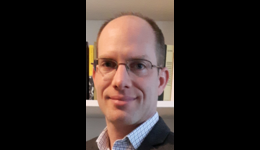
Michael Giudice
Presented by Michael Giudice, this talk considers that a prominent way to think about law is to adopt a state-centred view, which characterizes law as a special kind of normative system with special status within the society in which it exists. Giudice will aim to explore this view in the context of state-Indigenous legal relations in Canada. He hopes to show that such a perspective is not necessary, as some have maintained, but represents a social choice. He will also argue that the state-centred view creates serious moral and political difficulties for reconciliation.
Giudice is an associate professor of philosphy at York University, where he is also co-founder and co-director of York’s combined JD/MA (philosophy) program. He specializes in the philosophy of law, with a focus on questions of general jurisprudence, international law, constitutional law, legal pluralism and methodology. Recent book publications include Understanding the Nature of Law: A Case for Constructive Conceptual Explanations (Edward Elgar Press, 2015) and, with Keith Culver, The Unsteady State: General Jurisprudence for Dynamic Social Phenomena (Cambridge University Press, 2017). He earned his PhD in philosophy from McMaster University.
This event runs from 12 to 1:30 p.m.
Nov. 6 – 30 Years of Changes at the Immigration & Refugee Board
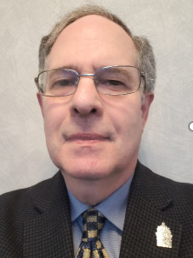
David Vinokur
Why was the Immigration & Refugee Board of Canada (IRB) established in 1989 to replace the former Immigration Appeal Board? How has the process for refugee status determination changed since 1989? How have the grounds for obtaining refugee protection in Canada changed since then? This presentation by David Vinokur will explore the legislative changes over the years that have attempted to make the refugee determination system fairer and more efficient. Among the changes: elimination of screening for “no credible basis,” single-member panels rather than two-member panels, proactive decision-makers at the Refugee Protection Division and an internal appeal to the Refugee Appeal Division.
The regulatory body for immigration consultants has changed twice and is about to change again. The presentation will discuss the difference between a “convention refugee” and a “person in need of protection,” and will also discuss the difference between the Canada-U.S. Safe Third Country Agreement and the new restriction on referral of a refugee claim to the IRB if the claimant has previously made a refugee claim in the United States, the United Kingdom, Australia or New Zealand.
Vinokur is currently general counsel and manager of the law at the IRB. He started his career in the federal public service as an adjudicator, conducting quasi-judicial inquiries and detention reviews under the former Immigration Act. Vinokur has been integrally involved in numerous immigration and refugee legislative reform projects since the 1980s, including the establishment of the IRB. He is a graduate of Osgoode Hall Law School and York University, and is a member of the Law Society of Ontario.
This event runs from 12 to 1:30 p.m.
Nov. 7 – Too Much Transparency in Policy Making? How Municipal Government’s Messy Policy Making Can Improve Public Confidence in Public Institutions
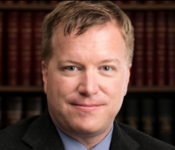
Joey Coleman
Joey Coleman, Canada’s first crowdfunded local journalist, looks at the challenges municipalities face as the most transparent level of government in Canada; how to improve public confidence in government processes by highlighting the messy process of municipal policy making; and how adversarial journalism can create more professional staff leadership at the municipal level.
Coleman is the St. Clair Balfour Fellow at the University of Toronto’s Massey College. He operates an independent news outlet called The Public Record in Hamilton, Ont. His journalism focuses upon municipal government, land-use planning policy and administrative tribunals. His research at the University of Toronto is focused on municipal engineering, aboriginal law and the Local Planning Appeal Tribunal.
This event runs from 12 to 1:30 p.m.
Nov. 11 – Special Remembrance Day Presentation: Here’s to Heroes
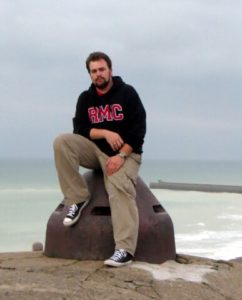
George Blake
This event is presented by George Blake as we commemorate the 101st anniversary of the end of the First World War. This presentation will highlight the military involvement of Canadian Forces since the Boer War. Using stories from family history and first-person accounts from the front lines and the home front, Blake will delve into the history of the Canadian military, the ideas of service and sacrifice, and the impact on real people in our society.
In addition to the Lunch Talk, there will be an exhibition of authentic military artifacts dating from the Boer War to present day.
Blake received a bachelor of arts in specialized history from York University in 2009 and a master of arts in war studies from the Royal Military College of Canada in 2013.
This event runs from 12 to 1:30 p.m.
Nov. 12 – Advancing Gender Claims in Post-Pink Tide Brazil: Bolsonaro’s Project for Women
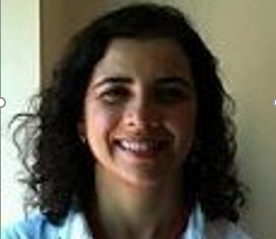
Simone Bohn
After 13 years of progressive gender policies enacted by Workers’ Party federal governments, Brazil, under Jair Bolsonaro’s administration, is shifting this public policy area in a different direction. Its gender project is founded upon a rhetoric that invokes a reimagined past that essentializes and glorifies women’s roles as mothers and homemakers and seeks the advancement of fundamentally feminine public policy claims.
Using extensive archival research and in-depth interviews with officials in charge of Bolsonaro’s women’s portfolio as well as women’s movement actors, presenter Simone Bohn will demonstrate the current government’s strong rejection of feminist public policy claims. The latter are equated to a radical leftist subversion of Brazilian family and societal values. Feminine-centric public policy, on the other hand, is portrayed as one of the key paths to restore a nation in which “Brazil is above all things, and God is above all.”
Bohn is an associate professor of political science at York University. She co-edited Mothers in Public and Political Life and is currently working on a Social Sciences & Humanities Research Council-funded project on Brazil’s women’s policy agency. Her articles have been published in the International Political Science Review, the Latin American Research Review and the Journal of Latin American Politics, among others.
This event runs from 12 to 1:30 p.m.
Nov. 13 – Ontario’s Ethical Framework and Public Service in Turbulent Times
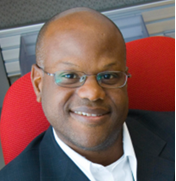
Derek Lett
It is often said that the only constant is change. This is true both locally and globally as governments struggle to offer stable leadership in the face of rapid demographic, economic, technological, ecological and cultural shifts that societies are experiencing. This presentation by Derek Lett will examine Ontario’s public sector ethics framework as it applies to provincial public servants and elected officials. It will explain how the public service values of professionalism, integrity and neutrality can be helpful to public servants, and aspiring public servants, as useful guides in navigating these turbulent times.
Lett has worked in the Ontario Public Service for the past 27 years. He is currently the director of operations, outreach and education in the Office of the Integrity Commissioner, an independent office of the Legislative Assembly of Ontario. He holds a specialized honours BA in public policy and administration from York University, a master in public administration from Queen’s University, a certificate in change management from the Rotman School of Management, University of Toronto, and a certificate in alternative dispute resolution from the Faculty of Law, University of Windsor. He is the recipient of the Ministry of the Attorney General’s Prix Excelsior Award for “professionalism, exceptional dedication and commitment to public service in Ontario,” as well as the Alumni Recognition Award and the Practicum Award from York University’s School of Public Policy & Administration.
This event runs from 12 to 1:30 p.m.
Nov. 14 – Ethics: My Beliefs from Life and Learning
Ian Macdonald will reflect on practical issues and dilemmas that he has faced over the course of 62 years as an academic, deputy minister in the Ontario government, university president, corporate director and volunteer in the not-for-profit world.
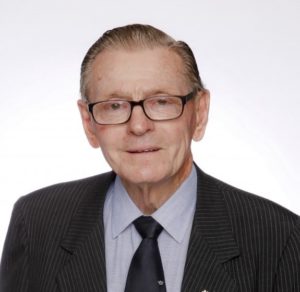
Ian Macdonald
Macdonald is president emeritus (York University), professor emeritus of economics and public policy, and former director of the Master of Public Administration Program (Schulich School of Business). He was president of York U from 1974-84. He is a graduate of the University of Toronto and Oxford University (Rhodes Scholar at Balliol College). He is former chief economist of Ontario and deputy treasurer of Ontario, and deputy minister of treasury, economics and intergovernmental affairs. From 1994 to 2003, he was the Chair of the Board of Governors of the Commonwealth of Learning. Macdonald is also a Fellow of McLaughlin College and a past director of a number of international academic organizations. In 1977, he was made an officer of the Order of Canada. He was awarded the 125th Anniversary of the Confederation of Canada Medal, the Queen Elizabeth II Silver, Gold and Diamond Jubilee Medals, and the Canadian Centennial Medal. He also earned the Vanier Medal for public service and is a recipient of a variety of honorary degrees in Canada and abroad. He is also former Chair of Hockey Canada.
This event runs from noon to 1:30 p.m.
Nov. 20 – The Toronto Office of the Integrity Commissioner – Fruits of a Major Public
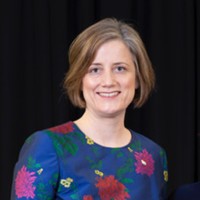
Valerie Jepson
This event is presented by Valerie Jepson, who will discuss the development and operation of Toronto’s Office of the Integrity Commissioner, the first municipal integrity commissioner in Canada. The integrity commissioner is part of the City of Toronto’s overall accountability framework and is responsive, in part, to recommendations made by the significant public inquiry known as the Bellamy Inquiry.
Since 2014, Jepson has been the integrity commissioner for the City of Toronto. From 2007 to 2014, Jepson was counsel to the integrity commissioner for the Province of Ontario. Prior to joining the public sector, Jepson practised as a litigator in private-sector law firms in Calgary and Toronto in a variety of areas of law. In 2018, she was awarded the Society of Ontario Adjudicators & Regulators Medal. In 2019, was recognized as a Distinguished Alumni by the University of Victoria Faculty of Law.
This event runs from 12 to 1:30 p.m.
Nov. 25 – Crisis Management or Hysteria? Policy Reactions to the 2015 Refugee Arrivals in Austria and Germany
Julia Kienast and Constantin Hruschka will present this talk, looking at the policy reactions to refugees arriving in Austria and Germany in 2015.
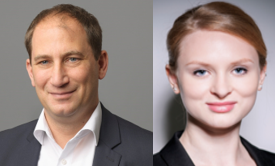
Constantin Hruschka and Julia Kienast
Kienast graduated from the University of Vienna in 2014 with a general law degree and a specialization in criminology as well as European human rights. From 2015 to 2019, she was employed as a research and teaching assistant in the Department of Constitutional & Administrative Law at the University of Vienna. Kienast has published in the area of migration, asylum and human trafficking, and he co-edited two handbooks on pretrial detention standards for juveniles and on radicalization of juveniles in detention. In the course of her PhD thesis, Kienast is researching sustainable and adequate instruments for the management of mass migration in Austria. Currently, she is an LLM candidate at the University of Michigan in Ann Arbor under the auspices of Fulbright and the Michigan Grotius Fellowship program. Kienast is a member of the German Netzwerk Migrationsrecht, the Viennese Refugee Law Clinic and the Academic Council on the United Nations System, amongst others.
Hruschka is currently working as a senior researcher at the Max Planck Institute for Social Law & Social Policy in Munich, Germany. In this capacity, he is participating in the Research Initiative of the Max Planck Society on the Challenges of Migration, Integration and Exclusion. Hruschka has previously worked, inter alia, with the Swiss Refugee Council (2014-17) and the United Nations High Commissioner for Refugees (2004-14), and he is a member of the Swiss Federal Commission on Migration. He teaches European asylum law, inter alia, at Bielefeld University. His areas of research include: international and European, German and Swiss asylum and migration law; human rights law; refugee law and refugee rights; integration and social rights; and ethics of migration. Hruschka has extensively published on asylum and migration law, with a strong focus on the common European asylum system and its implementation.
This event runs from 12 to 1:30 p.m.
